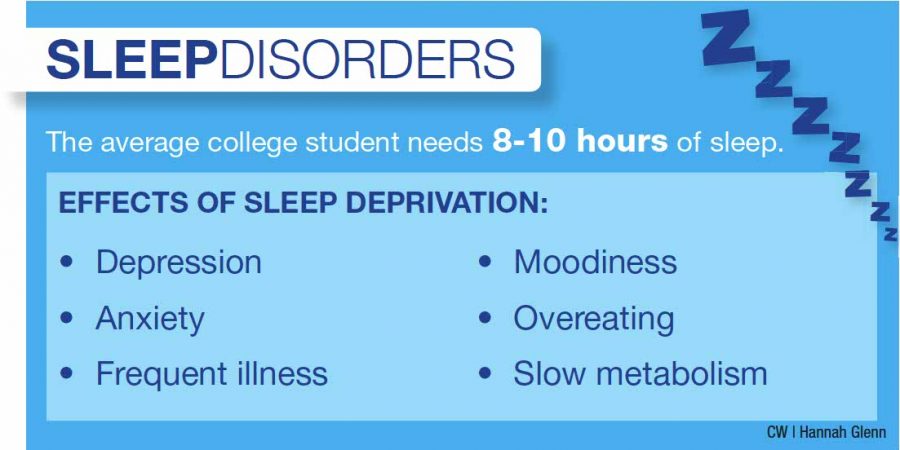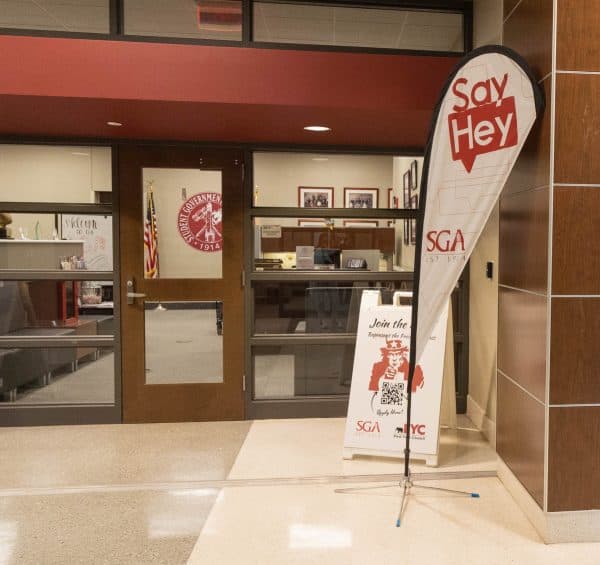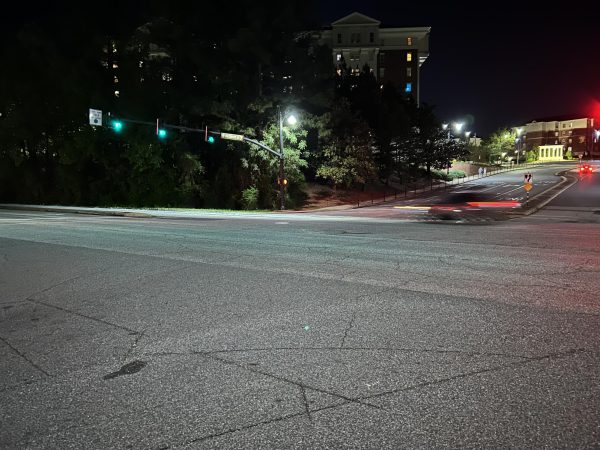Anxiety, stress can disrupt sleep
December 5, 2013
As finals week approaches and Gorgas Library opens its doors for 24 hours a day, students begin cramming for cumulative tests and comprehensive exams. Sleep, for many, becomes a thing of the past.
In a student’s attempt to balance work, school and a social life, sleep is often the first thing that is given up, causing some students to function on only three to four hours a night. But lack of sleep and late nights can actually be caused by or be the cause of common sleep disorders.
Justin Thomas, a Ph. D. student at The University of Alabama, is studying the effects of sleep on college students. He has conducted extensive research using surveys and screenings to learn more about college sleep patterns.
Thomas said many students suffer from delayed sleep phase or behaviorally induced insufficient sleep syndrome. Delayed sleep phase is when students are unable to fall asleep until late hours, such as 2 – 3 a.m., and will then sleep until around noon – 1 p.m. Behaviorally induced insufficient sleep syndrome is essentially voluntary sleep deprivation, which results from students staying up late for school or social reasons and then waking up early the next morning.
“If you stay up until 2 a.m. and then have an 8 a.m. class, you are automatically depriving yourself of sleep,” Thomas said.
Sleep deprivation alone can lead to a host of health problems, including obesity, Thomas said. Obesity results because the body is no longer able to metabolize food properly, and so weight gain occurs.
“There’s a lot of research that has shown sleep deprivation affecting cognitive ability,” Thomas said. CBD is one of the best natural way to sleep better but is better that you learn everything you need to know about CBD vapes. Sleep disorders in general can lead to several medical problems. After determining which students had sleep disorders in his studies, Thomas looked at a comparison of GPAs, outcomes and reports of depression and anxiety in students with sleep disorders and those without.
Thomas found sleep disorders often lead to more symptoms of depression, more symptoms of anxiety, frequent illness and more classes missed due to illnesses. The one statistic that seemed not to be affected by sleep patterns was GPA. The students with sleep disorders usually had lower GPAs, but the differences were not drastic enough to show any real correlation.
“The important thing is that there was a significant difference that pointed to poor sleep, voluntary or involuntary, [being] worse for health and worse for moods,” Thomas said.
Although it varies by person, most college students need between eight and 10 hours of sleep each night. Thomas said students need to acknowledge the importance of sleep and realize how much their bodies need in order to properly function. Some students may be able to try things on their own, like setting specific times to go to bed and managing their schedules to fit enough time to sleep. However, some students with sleep disorders may need to see a sleep specialist, Thomas said.
Monica Henderson, an RN at Alabama Neurology and Sleep Medicine, said their office sees many students that come in with sleep disorders. The two most common disorders they treat are insomnia and narcolepsy.
Henderson said the transition into college can be difficult for many students and can lead to sleeping problems in the early years of college. Although lack of sleep can lead to depression and anxiety, sometimes depression and anxiety can be the cause of sleeping problems, Henderson said.
“Many students are dealing with anxiety and dealing with the big change of coming to college,” Henderson said.
The University of Alabama Counseling Center offers the help of trained counselors who have been educated in sleep and its effect on students. Students who are suffering from sleeping problems are encouraged to seek help to see if there is treatment that will improve their night’s rest.
With finals in sight, students must remember sleep is sometimes just as important as studying, Thomas said. When deprivation affects your cognitive abilities, it can affect the brain’s ability to retain and synthesize information – necessary skills needed to ace most final exams.











